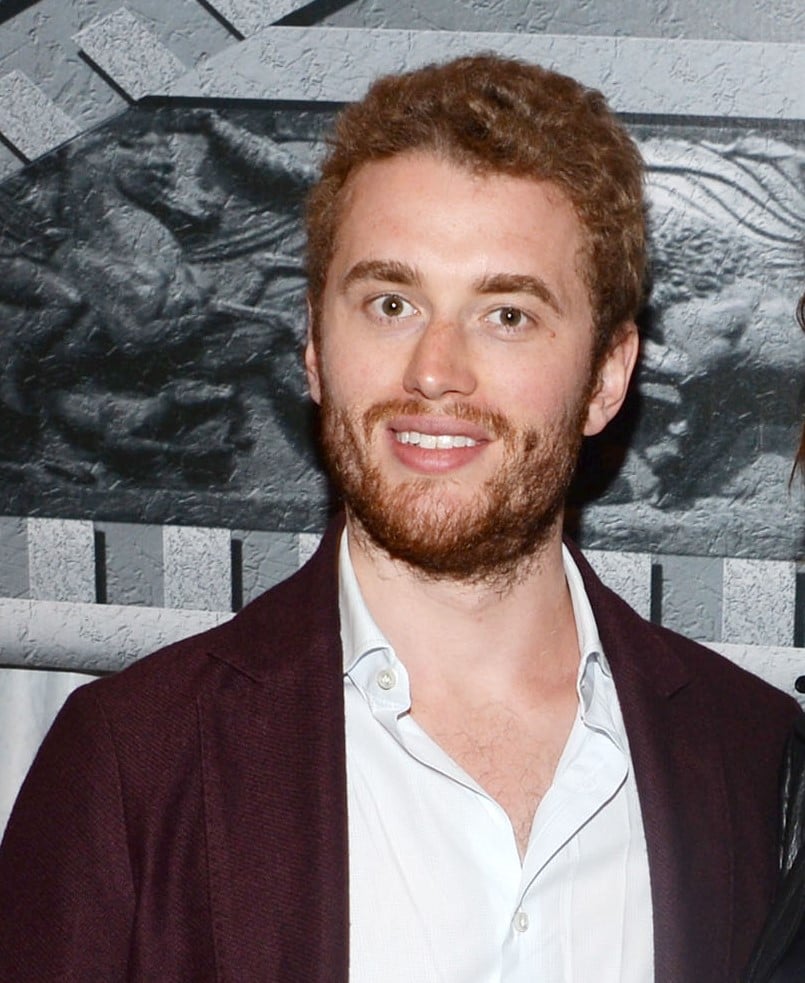Law & Politics
Dealer Inigo Philbrick Gets Seven Years in Prison for ‘One of the Most Significant Frauds’ in Art-Market History
Philbrick was found guilty of defrauding clients out of more than $86 million.

Philbrick was found guilty of defrauding clients out of more than $86 million.

Eileen Kinsella

Inigo Philbrick is headed to prison. A U.S. District Court judge today sentenced the disgraced art dealer to serve seven years behind bars for crimes connected to his now-collapsed art-dealing business.
Prosecutors accused Philbrick of committing “one of the most significant frauds in the art market in history,” describing his operation in a sentencing memorandum as “Ponzi-like.” He pleaded guilty to a criminal charge of wire fraud last November and has been in jail for nearly two years.
Although authorities recommended that Philbrick be sentenced to less than the official government guidelines of 10 to 12.5 years, they asked for “a significant term of imprisonment, substantially greater” than the time Philbrick had already served.
Once one of the best connected players in the contemporary art market, Philbrick fled the U.S. in October 2019 as civil lawsuits against him began to pile up. He is alleged to have sold shares amounting to more than 100 percent in artworks he did not own, falsified contracts, forged signatures, and invented fictitious clients in order to propel his ruse.
“Lies permeated nearly every aspect of the defendant’s business,” prosecutors said, noting that he spent his victims’ funds to buy art to lure more investors, pay off other clients, and fund his own extravagant lifestyle.
Dressed in brown prison clothes, Philbrick was escorted into the courtroom on Monday afternoon by two sheriffs. From behind his mask, his face looked thin; he showed little emotion during the roughly two-hour proceedings.

Inigo Philbrick’s arrest on the front cover of the Vanuatu newspaper, the Daily Post.
Also in the room was his fiancée, reality television star Victoria Baker-Harber, with whom he shares a daughter, and Philbrick’s mother, Jane.
Philbrick’s attorney, Jeffrey Lichtman, spoke at length about why his client deserved leniency, from the relentless media coverage to the impact of his parents’ contentious divorce when he was a teen. He noted that Philbrick began cooperating with U.S. authorities as soon as he boarded a plane out of Vanuatu, where he fled and was arrested by the FBI in June 2020.
The judge wasn’t having it. “You’re blaming that? Because his parents divorced?” Judge Sidney Stein said after listing a litany of Philbrick’s crimes.
At the end of the proceedings, Philbrick spoke from a prepared statement that was often difficult to hear through the mask. He said he hoped there was “no confusion” about the level of “remorse and sorrow” he felt over the damage he caused. He described his behavior as “outrageous and inexcusable” and apologized for his “disastrous and destructive acts.”
Midway through his statement, the judge interrupted him for a mandatory court break. When the session resumed, Philbrick said he was no longer going to read from the prepared statement he wrote in his jail cell.
He then talked about the shame and embarrassment he carried with him every day, admitting he had gotten in over his head from the very start of running his own gallery. Instead of coming clean sooner, he said, “so much of the origin was that I tried to fix that first problem.”
Philbrick’s fraud is estimated at just over $86 million and he has agreed to pay the same amount in restitution. It is unclear exactly how much money he actually has left; several paintings that passed through his hands are the subject of legal battles among multiple investors and lenders. Many of his victims may never recover their lost assets, prosecutors said.
In a letter to the court in early April, Daniel Tümpel, who owns Fine Art Partners (FAP) with his wife, Loretta Würtenberger, wrote that Philbrick “betrayed everyone he had ever worked with. Inigo Philbrick is a stone-cold criminal, who was driven by greed and the wish to finance his lavish lifestyle.”

A Rudolf Stingel painting from 2012 is at the center of the Philbrick case. Image courtesy Christie’s.
Their lawsuit seeks upward of $13 million in lost funds and art, including paintings by Rudolf Stingel, Yayoi Kusama, and Christopher Wool. Tümpel and Würtenberger, who did about 20 deals with Philbrick via FAP between 2014 and 2019, said they now believe Philbrick was deceiving them from the start by paying them money from sales that never took place.
Tümpel estimated that the financial “damage” to his family is around $22 million, plus another potential $1 million in legal fees. The couple, who could not be present at the sentencing, asked instead to dial in remotely from Germany.
Prosecutors noted that Philbrick also defrauded his mentor Jay Jopling, the owner of White Cube gallery, where he got his start as an intern. When Philbrick was late in paying Jopling for a Christopher Wool painting, he created a fake email account for a fictitious client, an Argentine financier by the name of Martin Herrero, who was supposedly a relative of Philbrick’s then-girlfriend Francisca Mancini. Philbrick supplied Jopling with a fake bill of sale and continued to correspond with his former boss as Herrero over the next year, fabricating “a variety of excuses” to explain why payment was delayed.
Asked for comment on today’s prison sentence, a White Cube representative said: “Mr. Jopling has suffered substantial financial loss as a result of Mr. Philbrick’s frauds. As there are legal proceedings still ongoing in relation to these losses, he cannot comment further.”
Authorities described Philbrick’s scheme as “both extensive and brazen.” According to the sentencing memo, he and an associate “used subtly derogatory nicknames to refer to certain of their victims” and kept spreadsheets tracking which victims owned what percentage of artworks—in many cases tallying to more than 100 percent.
“A handwritten note recovered from the defendant’s Miami gallery discussed one of the defendant’s repeat victims,” the prosecutors’ memo continued, “and posed the question, ‘How to f*** them?'”
Speaking at the courthouse after the hearing, Lichtman, Philbrick’s lawyer, said he was grateful the sentence came in under the sentencing guidelines considering the high value of the fraud.
“He’s the easiest client,” Lichtman said of Philbrick. “It’s because he recognizes that he’s not fighting this anymore. He’s here to try to make things right and is going to have a second chapter in his life. Not everybody goes that way so quickly. I have high hopes for him.”